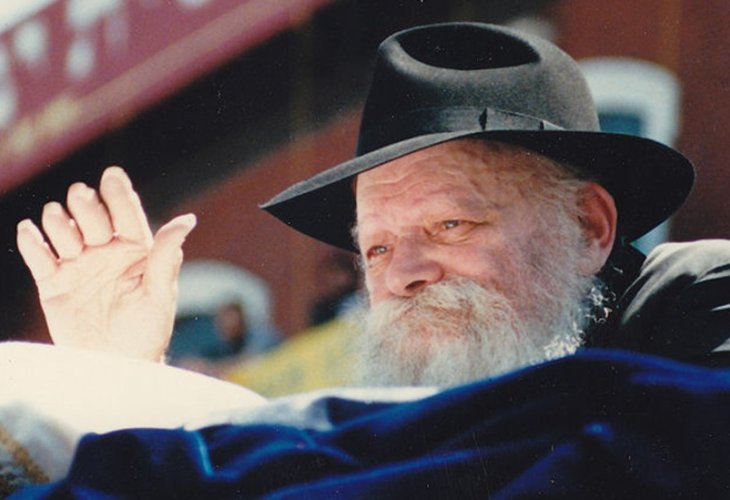Personal Stories
A Shabbat Story: When a Father of a Sick Child Threw a Shoe at the Rebbe’s Picture
After a desperate outburst, a miracle unfolds and a silent Rebbe still listens

This powerful story begins with a young, bright boy whose behavior suddenly changed. He became unusually tired, couldn’t concentrate, and his parents knew something was wrong. After a series of medical tests, the doctor gave them terrible news.
“I’m afraid there’s a mild brain injury,” the doctor said, “and we’re very concerned it could be a brain tumor.”
The parents were stunned. For a long moment, they couldn’t even speak. The shock was paralyzing.
Then came weeks of visits to specialists, long hospital stays, and endless testing. The boy’s father, who had grown up religious but had since become more distant from Judaism, reached out to a friend for guidance. That friend gently suggested: “Write to the Lubavitcher Rebbe. Share what’s happening. Wait for his reply.”
A few days later, the father received a short, handwritten response. It simply said:
“I will mention it at the gravesite.”
This was the Rebbe’s way of saying that he would pray at the resting place of his father-in-law, the previous Lubavitcher Rebbe asking for a blessing on the boy’s behalf.
The parents were disappointed. They had hoped for a clear promise, some hopeful message or instruction. Instead, they received a short sentence, one that felt distant in such a painful time. But they were told that this kind of response actually meant the Rebbe was spiritually taking action, and that it was often a very hopeful sign.
Still, the test results came back devastating. The doctors now told the parents that their child had a malignant tumor. In their opinion, the boy had only a few weeks left to live.
The family was shattered.
Again, they turned to the Rebbe’s secretariat. Again, they begged for a blessing. Again, the Rebbe replied with the same words: “I will mention it at the gravesite.”
A secretary tried to comfort them, explaining that this phrase was often understood as a quiet reassurance, almost like the Rebbe’s way of saying: “It will be good.”
The parents returned to the hospital with hearts full of faith, trying to hold on to hope. But the boy’s condition only got worse. There was a steep decline, and no sign of improvement.
One day, during a break between hospital shifts, the father came home to rest. He collapsed into an armchair, still wearing his shoes. Too exhausted to even untie the laces, he pulled them off and stared into the room.
His eyes landed on the portrait of the Lubavitcher Rebbe hanging on the wall. The Rebbe’s calm, smiling face looked down at him.
The father, overwhelmed by pain and anger, snapped.
“Your blessings didn’t help! He’s only getting worse!” he cried out to the picture. “You’re smiling… and I can’t even smile anymore!”
Tears welled in his eyes. His body filled with frustration and helplessness. Without thinking, his hand reached for one of the shoes and threw it hard at the picture.
It hit the frame with a loud bang.
Who could judge a brokenhearted father watching his son slip away?
Two years passed.
Against every prediction, the boy slowly began to recover. His strength returned. The tests improved. He got better and better until he was fully healthy. The doctors were amazed.
Life returned to normal. The parents went back to work. The boy returned to school. And finally, the day came when the family had the chance to visit the Rebbe in person like so many others to receive a dollar for tzedakah (charity) and a blessing.
They waited in line. When they finally reached the Rebbe, before they could even say a word, he looked at them with a warm, fatherly smile.
“Nu, how is your child?” he asked gently.
The parents were stunned. How did the Rebbe recognize them? How did he remember their story?
The father quickly pulled himself together and answered, “Thank Hashem, everything is fine thanks to the Rebbe’s holy blessing.”
The Rebbe smiled deeply and replied, “Nu, thank Hashem.” Then, lowering his voice just slightly, he added:
“But I still feel the blow.”
This quiet sentence shook the father to his core. The Rebbe had felt it. He remembered the shoe, the pain, the desperation and he had never taken it personally.
On the contrary, he had taken it to heart.
In honor of the yahrzeit (anniversary of passing) of the Lubavitcher Rebbe, which falls this Shabbat, 3 Tammuz, this story reminds us that the love of a true leader runs deep even when the people he helps are too broken to say thank you.
(Based on the book The Wonderful and Special, soon to be released.)

